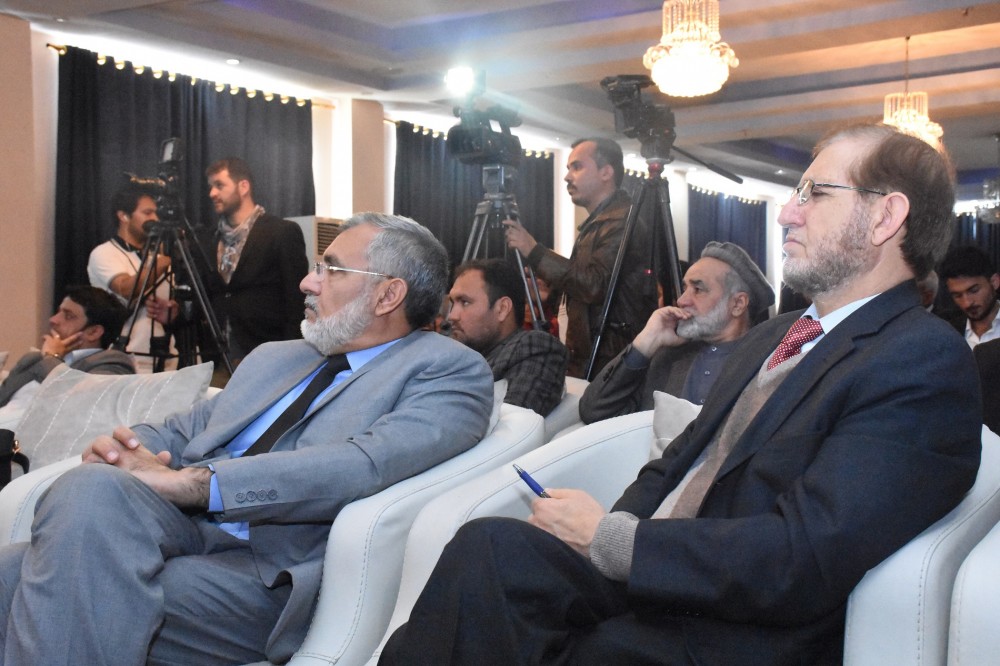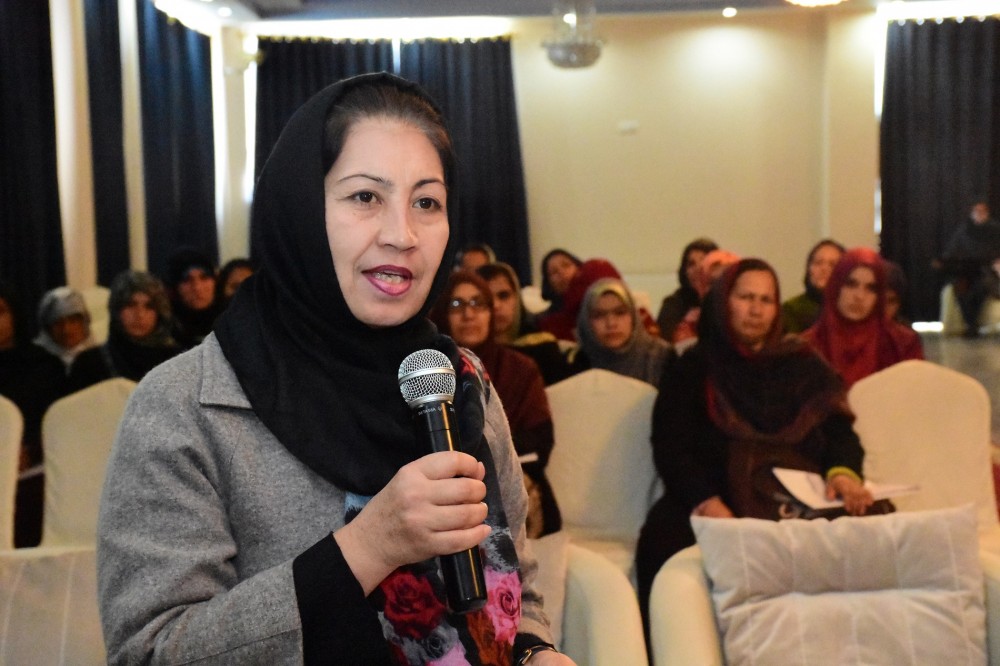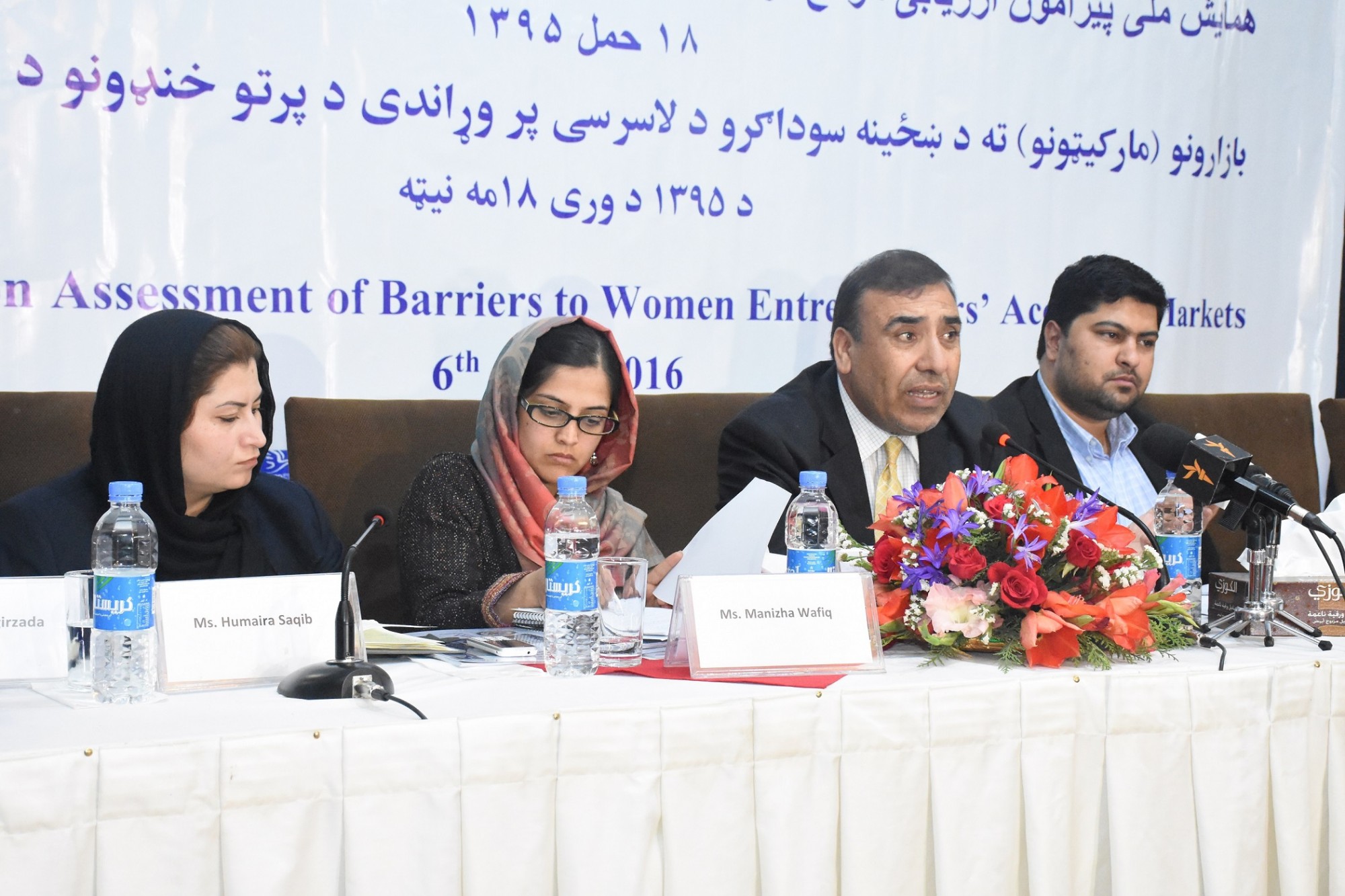 On 6th April 2016, EQUALITY for Peace and Development (EPD) launched an assessment entitled “Rapid Market Assessment: Barriers to Women Entrepreneurs’ Access to Market”. The assessment analyzes the current status of women entrepreneurs in Afghanistan, the country’s economic outlook, the socioeconomic context for women and women’s role in private sector. Moreover, it highlights the improvements that have taken place in the living conditions, education levels, political participation and the economic status of Afghan women in the post-Taliban era. The assessment includes a number of recommendations designed to improve women’s participation in the business sector.
On 6th April 2016, EQUALITY for Peace and Development (EPD) launched an assessment entitled “Rapid Market Assessment: Barriers to Women Entrepreneurs’ Access to Market”. The assessment analyzes the current status of women entrepreneurs in Afghanistan, the country’s economic outlook, the socioeconomic context for women and women’s role in private sector. Moreover, it highlights the improvements that have taken place in the living conditions, education levels, political participation and the economic status of Afghan women in the post-Taliban era. The assessment includes a number of recommendations designed to improve women’s participation in the business sector.
 The launch event gathered over 60 participants from government, civil society, NGOs and the media. The panel discussion was moderated by Mr. Edress Omarzad, Executive Director of EPD, who was joined by Ms. Humaira Saqib, Head of Civil Society Joint Working Group; Ms. Manizha Wafiq, Chairperson of LEAD Board; Ms. Kubra Dastgirzada, Head of Farah Farhat Faizi Agricultural Production Company; Mr. Shahmahmood Miakhel, Country Director, Afghanistan United States Institute of Peace (USIP); Mr. Mohammad Naeem, Program Director at Center for International Private Enterprise and Mr. Abdul Halim Achakzai, Senior Associate at EPD.
The launch event gathered over 60 participants from government, civil society, NGOs and the media. The panel discussion was moderated by Mr. Edress Omarzad, Executive Director of EPD, who was joined by Ms. Humaira Saqib, Head of Civil Society Joint Working Group; Ms. Manizha Wafiq, Chairperson of LEAD Board; Ms. Kubra Dastgirzada, Head of Farah Farhat Faizi Agricultural Production Company; Mr. Shahmahmood Miakhel, Country Director, Afghanistan United States Institute of Peace (USIP); Mr. Mohammad Naeem, Program Director at Center for International Private Enterprise and Mr. Abdul Halim Achakzai, Senior Associate at EPD.
 In his remarks, Mr. Miakhail emphasised the practical effectiveness of current trade and entrepreneurship policies. “Huge numbers of policies and projects have not benefited entrepreneurs. Therefore, the time has come to examine efficiency and quality of them”.
In his remarks, Mr. Miakhail emphasised the practical effectiveness of current trade and entrepreneurship policies. “Huge numbers of policies and projects have not benefited entrepreneurs. Therefore, the time has come to examine efficiency and quality of them”.
Ms. Saqib discussed the challenges which women entrepreneurs are currently facing. In her view, “one criteria for measuring the development of a country is women’s involvement in all sectors. Unfortunately, cultural, economic and social challenges are the main barriers that hinder women’s participation in Afghanistan’s business sector”.
Ms. Wafiq gave a concise overview of the main findings of the research report. She argued that the government should allocate more budget for the promotion of women in commerce.
Mr. Naeem discussed the problems and legal gaps that currently exist in commercial law. He believes that the government needs to undertake a concerted effort across customs and other agencies in order to enhance women’s role in the trade.
Mr. Achakzai discussed the methodology that was used for carrying out the research, and gave a detailed breakdown of its recommendations.
Finally, Ms. Dastgirzada talked about the trajectory of women entrepreneurs in Afghanistan, pointing out that despite facing many problems, Afghan women are at present successful in the business sector.
The Rapid Market Assessment has been published in English, Dari and Pashto in our website. For more information and updates about the launch event, please check our Facebook page.

